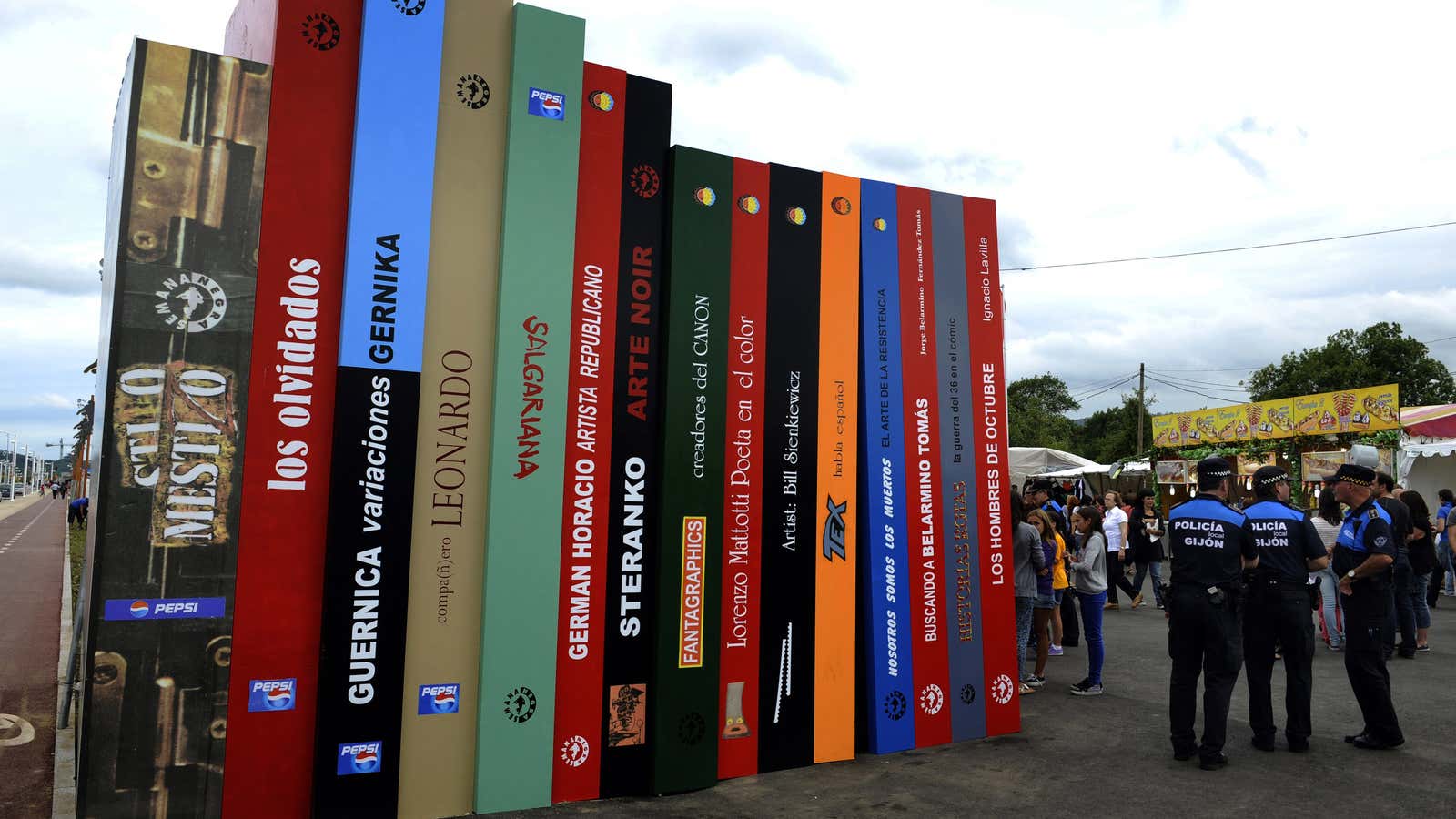The latest edition of Spain’s most prestigious dictionary has been released (link in Spanish). And it has a lot of English in it.
Every new dictionary release comes with a host of additions—new words, definitions, and meanings that reflect how language has changed since the previous update. Like language arbiters in many countries, the organization that oversees the official dictionary, the Real Academia Española (RAE), is protective of its native tongue, and fears Spanish will be diluted by the addition of too many foreign words.
That is especially true of English words. Thanks to Hollywood, the default use of English in science and technology, and globalization in general, English words are widespread in Spanish. Try as it might, the RAE can’t stop Spanish speakers from saying “gángster” or “hacker” in everyday speech.
But sometimes, a usage becomes so common that the RAE has to relent, allowing an Anglicism into its pages. “Hacker” was added a few years ago. The RAE might try to change the spelling, though—”tuit,” meaning “tweet,” was added recently. Here are the RAE’s English additions, and English-derived words, this time around:
The most notable:
- ataché: This incorporates both the French meaning of attaché as a diplomatic functionary, and the American usage of attaché case.
- clic: A click, as on a computer.
- clicar: To click, as on a computer.
- cliquear: Alternate spelling of “clicar.”
- cliqueo: The action of clicking.
- container: This entry uses the English spelling as-is, and refers to either a general container or specifically a shipping container.
- cracker: Information pirate.
- fair play: Also included as-is, with the English meaning.
- posverdad: From the English “post-truth,” meaning “a deliberate distortion of reality.”
The scientific:
- autólogo: autologous
- biocida: biocide
- bioenergía: bioenergy
- especismo: speciesism
- holter: A heart monitor
New definitions for the word “English”:
The RAE has added two amusing definitions for the word “inglés,” meaning “English,” itself.
- inglés: Related to humor: Characterized by the sharp irony and concealed sarcasm attributed to the English.
- inglés: Related to punctuality: Rigorous, exact.
In a press conference announcing the new edition, RAE director Darío Villanueva mentioned several “unnecessary” English terms that would not make it into the dictionary: black Friday, take away, save the date, dress code, prime time, streaming, product manager, and community manager. They already have Spanish equivalents, he says.
Villanueva also noted, “The Academy is not against the incorporation of foreign terms, though we are concerned with the excessive and unnecessary use of English words.”
Have a look at all the new additions here (pdf).
